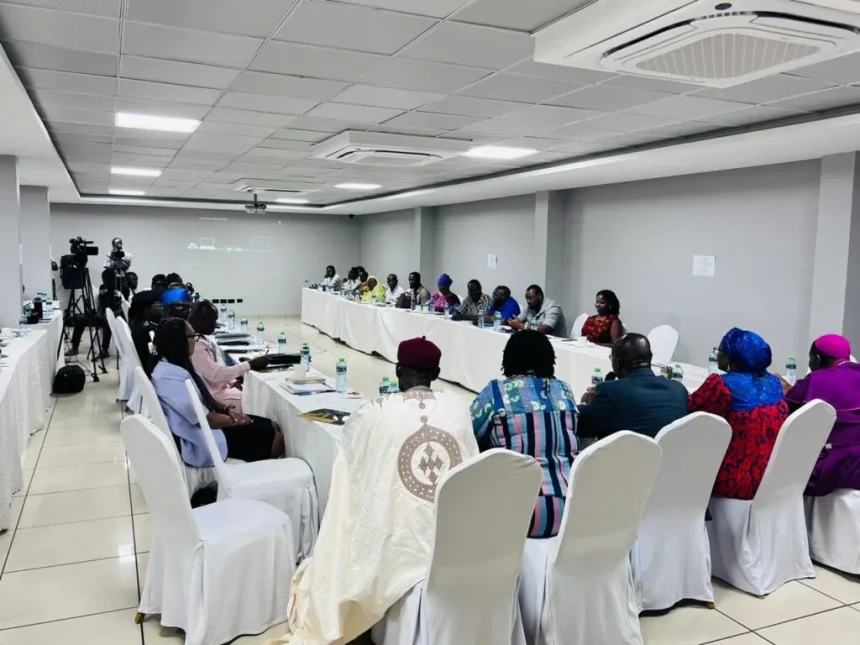Under the aegis of the National Peace Council (NPC), Ghana’s political parties signed a code of conduct on vigilantism and election violence in July 2024 to mark the start of the election campaign season, and inaugurated a monitoring commission to oversee compliance.
“Political parties have a major responsibility to the Nation to make sure that elections in this country do not upset its prized peace and stability,” stressed NPC Chairperson Ernest Adu Gyamfi at the signing ceremony in Accra. “Violence is not a legitimate election strategy.”
The representatives of the countries’ two main parties, the New Patriotic Party (NPP), currently in office, and the National Democratic Congress (NDC), in opposition, conceded that their youth wings had sometimes resorted to violence and intimidation in past elections, which was unacceptable. They welcomed the inauguration of the monitoring commission, which should help them keep their activists in line.
“Violence is not a legitimate election strategy.”
Ernest Adu Gyamfi, National Peace Council Chairperson
The monitoring commission, which includes not only representatives of the main parties, who will provide a kind of peer review, but also the NPC, the Election Commission, the Inspectorate General of Police and the Kofi Annan Peacekeeping Training Centre, among others, will bring breaches of the code to the attention of the political parties and the NPC, which will be tasked with mediating any potential conflicts that may arise. The code ought to have a deterrence effect, and the commission will provide a means of addressing violations quickly.
Ghana is a stable, democratic country with a history of successful political transitions, a free press, an active civil society, and an independent judiciary, and has held eight free and fair elections since 1992. In the most recent Afrobarometer survey, 76% of Ghanaians expressed support for a democratic form of government, and 67% rejected military rule, which has been gaining ground in the region. That said, general elections have regularly been marred by a degree of violence, often perpetrated by party-linked vigilantes.
“At a time when democracy is in retreat, especially in West Africa, it is all the more important that Ghana remain a beacon of democracy,” stressed Sébastien Brack, the Kofi Annan Foundation’s representative at the signing ceremony. “Although he was a global statesman, Kofi Annan was proud to be Ghanian because Ghana is famous for its peace and democracy. Every election is a test of that reputation, but also an opportunity to reaffirm Ghanaians’ commitment to a system that has served them well.”
“…it is all the more important that Ghana remain a beacon of democracy.”
Sébastien Brack, Kofi Annan Foundation Senior Advisor
Ghana has indeed experienced significant economic development since 1992, not least thanks to its stable, peaceful and democratic political system, That said, the December 2024 elections will take place against the backdrop of a debt crisis, public spending cuts, slow growth and rising poverty and unemployment.
More worryingly, according to Afrobarometer, “citizens’ confidence in the election management body is at the lowest level recorded in two decades of surveys.”
The signing ceremony was the first of a series of joint election-related activities the Kofi Annan Foundation is planning with the NPC. We will also hold a series of dialogues with electoral stakeholders, especially party youth groups, in Ghana’s six “geopolitical zones” in the coming months. This will lead up to the signature of a public pledge by the presidential candidates in the run-up to the elections to eschew any hate speech or condone any violence, and to respect the outcome of the elections, or take their grievances to the courts rather than the streets. Finally, the NPC and the KAF will convene a post-election roundtable in early 2025 to address some of the recurring problems that bedevil Ghana’s elections.
Source; kofiannanfoundation.org





